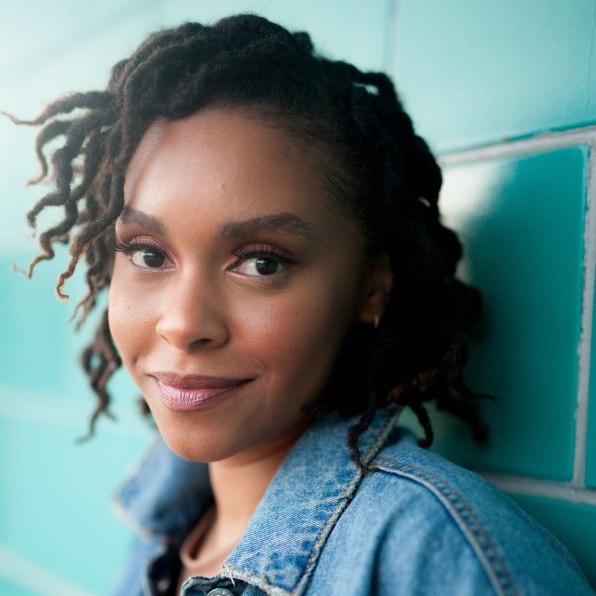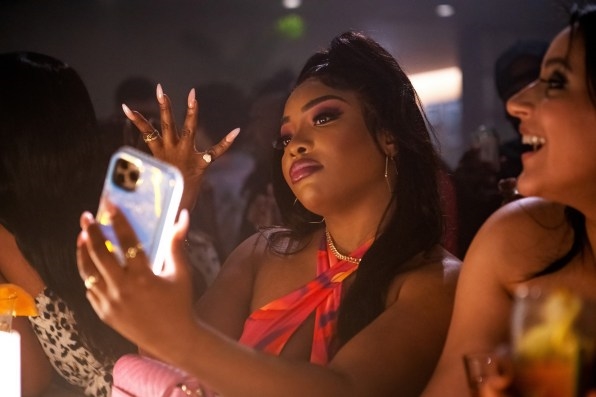Issa Rae’s new HBO Max show, ‘Rap Sh!t,’ is an ode to women in hip-hop
When Issa Rae called Syreeta Singleton to tell her that she would be the showrunner for her new HBO Max show, Rap Sh!t, Singleton was in disbelief. Despite working up the ranks in Insecure’s writers room to executive story editor, Singleton didn’t think she would be up for the task.
“Once it got picked up to series, she called me and let me know, and I was ready to congratulate her. Then she asked me to run it,” Singleton says. “I was just not expecting it. I was like damn, I wish she had prepared me for this! There was a lot of growth for me to make both professionally and internally to step into this.”
Rap Sh!t was birthed from the early drafts of what became Insecure. The comedy series follows two former classmates, Shawna (Aida Osman) and Mia (KaMillion), who reconnect years later to form a rap group in Miami. Shawna is an aspiring socially conscious rapper with high hopes of making it, despite a previous record deal gone sour. Mia is a single mother with a burgeoning business and sizable Instagram following that becomes the key to the group’s inception—it also lays the groundwork for the show’s commentary on social media.
We’re introduced to the characters through their TikToks, social media profiles, and Instagram Stories; and the show illustrates the good and the ugly that come with a life of constant posting. Social media is where stars are easily born and simultaneously torn down. Rap Sh!t is about documenting all the current challenges of being a rising star in the digital age, from instant virality to the harassment of trolls.
“The pilot was written completely through devices,” Singleton says. “We step into the real world in some moments, but the intention is to always be on screens.”

[Photo: courtesy of HBO Max]
And social media’s impact on the music industry cannot be overstated.
New artists used to rely heavily on record labels for marketing and promoting their music and brand. Now, labels are coming to artists because of the audience they’ve generated on their own through social media.
“A lot of the artists we discover now, we discover through social media. It’s like an extension of our lives at this point,” Singleton says. “The characters on the show are in the their twenties—they’ve grown up with social media, so they know how to promote and sell things on social media. We’re hitting on multiple layers of what it means to not only be a user, but to also be part of that world.”
Inspired by the careers of Cardi B, Megan Thee Stallion, Tierra Whack, Noname, City Girls, Nicki Minaj, and others, Rap Sh!t also addresses the double standard in the music industry in which women are sexualized while also being demonized when they lean into their own sexuality. There’s also the issue of the female rappers who deviate from sexual branding being ignored by the same audience demanding less sex. It may seem like a lose-lose scenario overall but over the past few years, there’s never been as much attention on women in hip-hop. And Rap Sh!t is doing its part in helping women further reclaim their space in the industry.

During the show’s development, Issa Rae’s music label, Raedio, held a writing camp with female rappers, including Dreezy, PineappleCITI, and NCognita, to help pen raps for the main characters.
“Prior to the writing camp, I thought we’d just hire some songwriters to do some of the tracks, and all they sent me were men,” Singleton says. “My mind was blown, reading about all these men who write for female rappers—to Shawna’s point in episode two. There are so many men behind some of these songs. But I had to say no, not on this show.”
Ultimately, Rap Sh!t is a love letter to female rappers, both past and present. As the music industry continues to evolve and change with social media, and more artists collaborate with each other, the sexist notion that there can only be one female rapper to rule them all is no longer.
“The thing about men is that they think there can only be one. They pit women against each other,” Singleton says. “But now that there are so many women rappers who are telling us to use our voices, and now all the men are up in arms.”
Fast Company , Read Full Story
(34)


